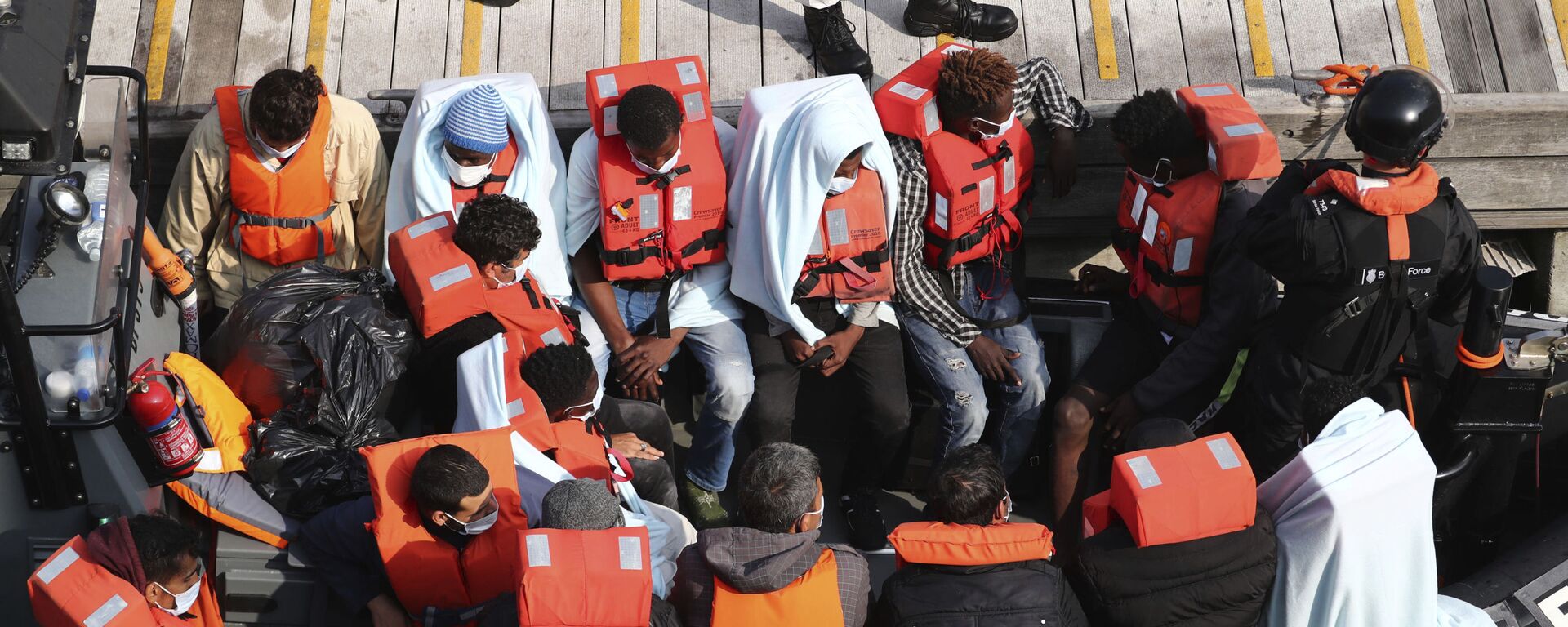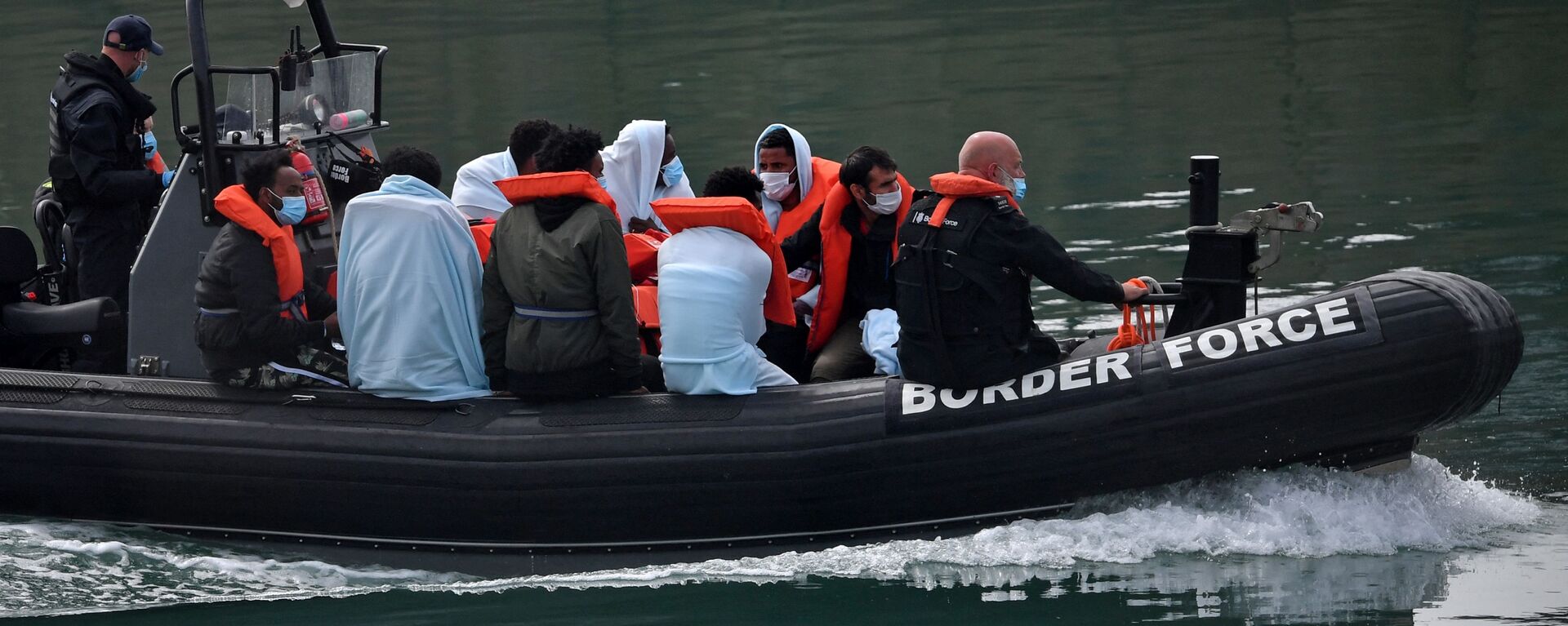BoJo’s Plan to Offshore Migrants to Rwanda ‘Cannot Stand Up to Judgment of God’ - Archbishop
06:50 GMT 17.04.2022 (Updated: 15:19 GMT 28.05.2023)
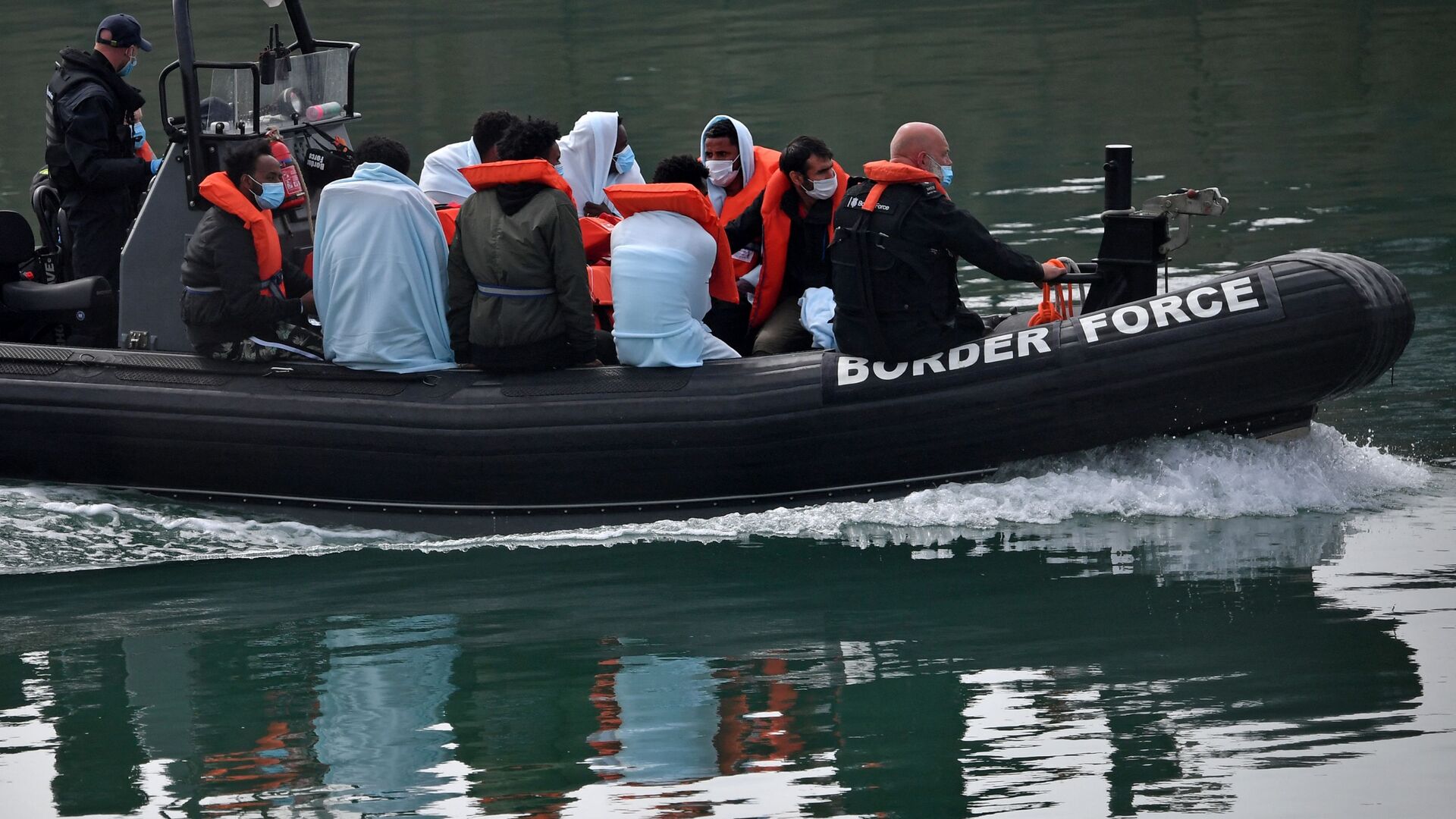
© AFP 2023 / BEN STANSALL
Subscribe
The leader of the Church of England has joined a chorus of voices attacking the UK government’s newly-announced plan to tackle migration by deporting asylum-seekers to Rwanda as raising both serious ethical questions and legal concerns.
Boris Johnson’s plan to deport asylum seekers to Rwanda does not “stand the judgment of God”, according to the Archbishop of Canterbury.
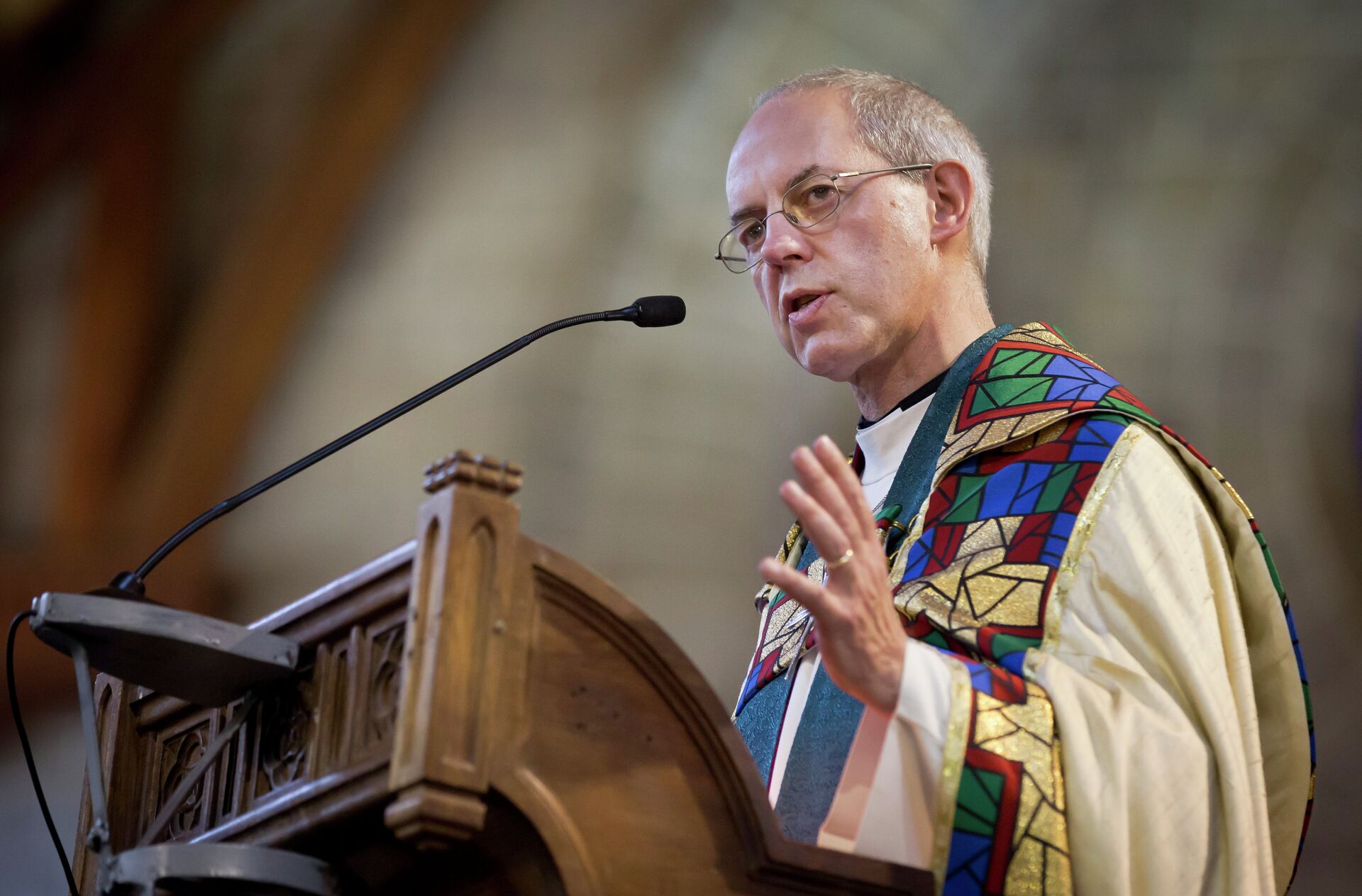
The Archbishop of Canterbury Justin Welby conducts a service at the All Saints Cathedral in Nairobi, Kenya Sunday, Oct. 20, 2013
© AP Photo / Mohammad Hannon
The head of the Church of England, Justin Welby, is expected to weigh in on the government’s immigration plans in his Easter Sunday sermon, saying that there are “serious ethical questions about sending asylum seekers overseas”, reported UK media outlets.
“The details are for politics. The principle must stand the judgment of God, and it cannot. It cannot carry the weight of resurrection justice, of life conquering death. It cannot carry the weight of the resurrection that was first to the least valued, for it privileges the rich and strong”, the archbishop is expected to say during his sermon.
This criticism of the government’s immigration plan will be echoed by the Archbishop of York, Stephen Cottrell, who will similarly use his Easter Sunday address to voice distress over the fact that “asylum seekers fleeing war, famine, and oppression from deeply troubled parts of the world will not be treated with the dignity and compassion that is the right of every human being, and instead of being dealt with quickly and efficiently here on our soil will be shipped to Rwanda”. “We can do better than this”, Cottrell is to add.
Rwanda Migrant Deal
Ever since UK Prime Minister Boris Johnson and Home Secretary Priti Patel revealed the new deal to deport unauthorised asylum seekers crossing the English Channel or arriving by lorries for processing in Rwanda, the immigration plan has raised serious questions.
Albeit coming as part of an urgent government response to the escalating migrant crisis, which has seen the number of arrivals pass 5,000 this year, the ethical side of the arrangement, the legality of the plans, and the costs have been debated.
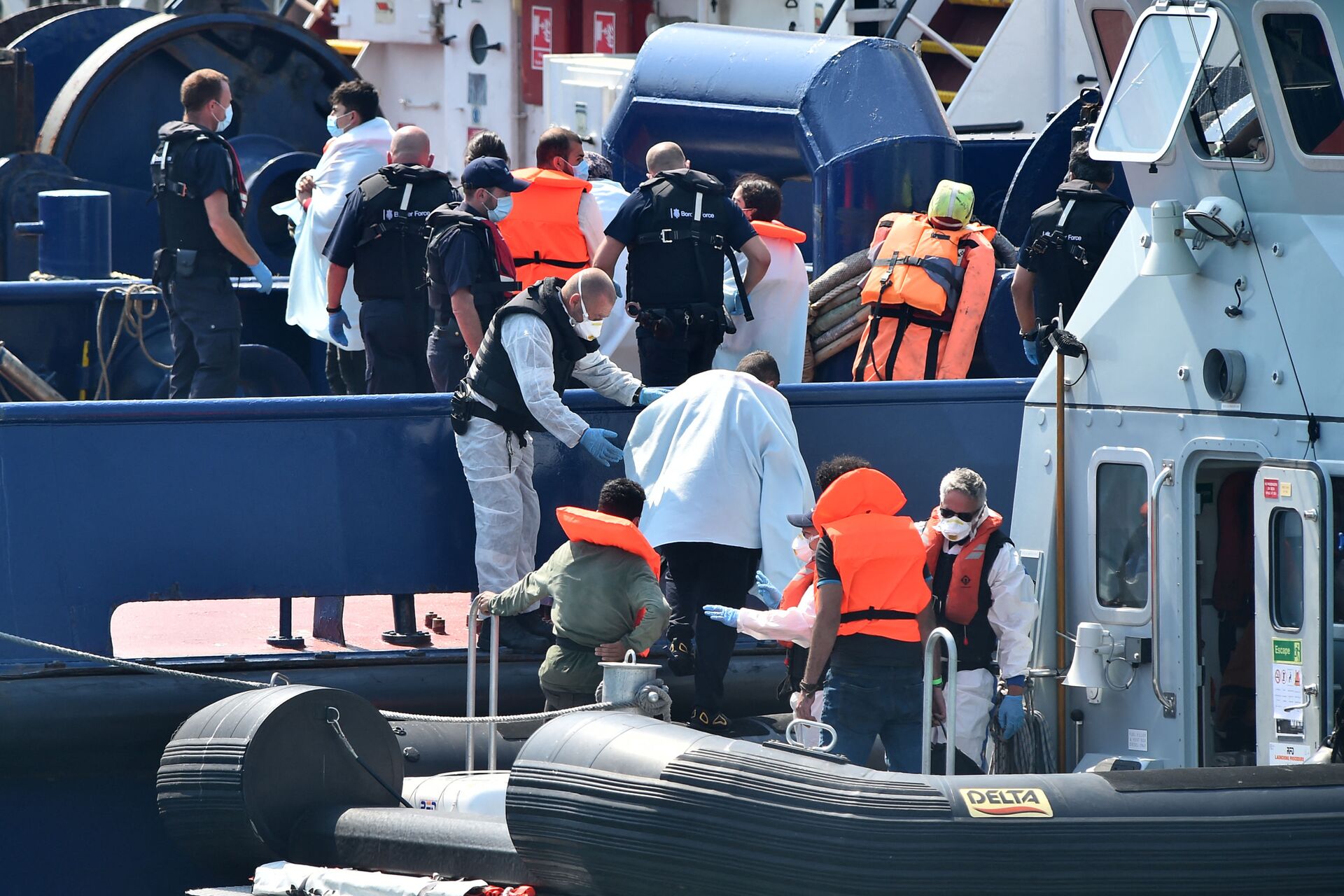
UK Border Force officers help migrants, believed to have been picked up from boats in the Channel, disembark from Coastal patrol vessel "HMC Speedwell", in the port of Dover, on the south-east coast of England on August 9, 2020. - The British government on Sunday appointed a former marine to lead efforts to tackle illegal migration in the Channel ahead of talks with France on how to stop the dangerous crossings. (Photo by Glyn KIRK / AFP)
© AFP 2023 / GLYN KIRK
Priti Patel signed the multi-million pound deal in Kigali, the East African country’s capital, last week, with Conservative MPs largely welcoming the policy. It presupposes an initial down-payment of £120m ($157 million) to the Rwandan government, plus Britain covering the cost of flights and accommodation.
In line with the plan, adult migrants who have arrived in the UK seeking sanctuary since January will be flown to Rwanda, with the rule not applicable to children and their parents. After the asylum claims are processed within a period of three months, those who are successful will be able to stay in the East African country for at least five years with a training and support package set aside for them.
The first flight is expected to leave before the end of next month, a Daily Mail source was cited as saying.
The measure was immediately slammed as “immoral”, breaching the 1951 Geneva Convention on refugees and sure to be challenged in courts. However, it triggered even more outrage last night after The Observer reported that unaccompanied children were among those “highly likely” to be deported to Rwanda.
According to cited immigration experts, a “high proportion” of unaccompanied children arriving on small boats via the English Channel are classified as adults by Home Office officials.
Children as young as 15 have been assessed as aged 22 or 23, according to cited refugee law specialist Daniel Sohege, working for anti-child trafficking charity Love146 UK.
“This means there’s a big chance of sending children to Rwanda. And once there, they won’t be able to have their age assessments reassessed or appealed”, he was cited as saying.
The UN’s refugee agency, which earlier denounced the Rwanda migrant deal as “unacceptable”, has confirmed that its legal team was assessing the legality of the measure.
Furthermore, according to Enver Solomon, chief executive of the Refugee Council, there are serious concerns that the deal with Rwanda does not reveal detail about whether the deported people will receive healthcare or financial support. Another concern was that victims of torture and people trafficking might end up being among those removed from the UK.
“We are alarmed about the fact there is likely to be a simplified screening process that will effectively mean they’re going to be sending potential torture and trafficking victims who should instead be referred to the national referral mechanism”, Solomon was cited as saying.
“The deal reveals that the government is showing total disregard for the welfare and wellbeing of very vulnerable people. It is treating them as human cargo to be shipped to Rwanda and forgotten about”, he added.
Amnesty International has also called the new plans “appalling”.
The UK Home Office has already stated that the Rwanda plan was not conditional on the Nationality and Borders Bill becoming law, as the new scheme could proceed through existing immigration rules.
However, it emphasised that the bill would “remove barriers to creating offshoring … [though] these powers are not needed for the agreement with Rwanda”.
A spokesperson for the Home Office added that migrants flown to Rwanda would have “support and care” including “safe and clean accommodation, food, healthcare and amenities”, along with translators and “legal support to appeal decisions in Rwanda’s courts”.
